Given the immense access challenges which face humanitarian actors in war-torn Yemen, outside observers may ask themselves how organizations like ACTED continue to operate in such a context. ACTED has created the following photo story to shed light on the life-saving work being carried out every day by ACTED’s national staff in Yemen.
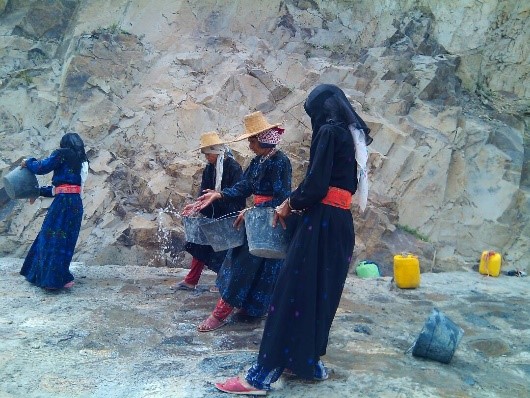
Women sprinkle water to moisten the concrete on a new road in Al Gafariyah district: To foster participation and social acceptance for women and persons living with disabilities, ACTED designates specific activities for these groups which are physically and socially appropriate. Like for male participants, the work schedule is flexible to allow female beneficiaries to continue with their domestic tasks, thus reducing the likelihood that family pressures will prevent their participation.
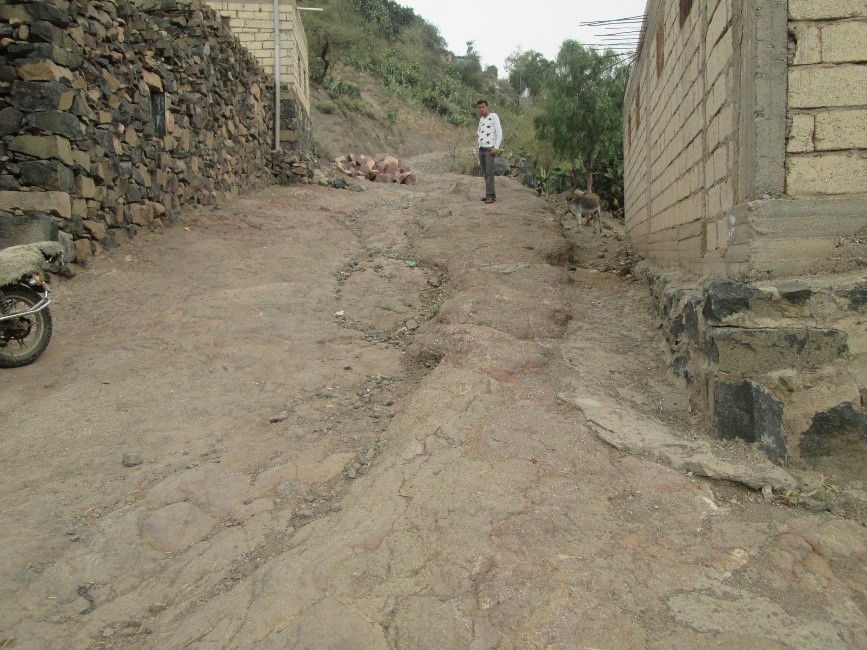
ACTED’s projects in Yemen have targeted: roads, schools, health facilities, agricultural infrastructures, shallow wells, community water networks (including drinking water) and water storage. The organization is also active in the day-to-day clearance of rubbles and debris which arise as a result of the conflict.
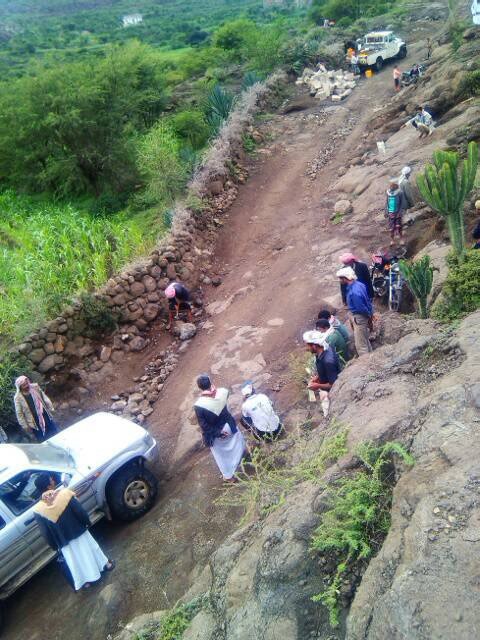
Both the conflict, the weather, and a lack of investment have caused widespread damage to vital infrastructure such as roads, often severing remote communities from local services such as hospitals. ACTED employs local labour through vouchers and cash payments to carry out the rehabilitation works themselves. Such support provides the most vulnerable and food insecure with the means to meet their family’s needs and brings a sense of dignity for having contributed to essential public works.
Who decides where ACTED intervenes?
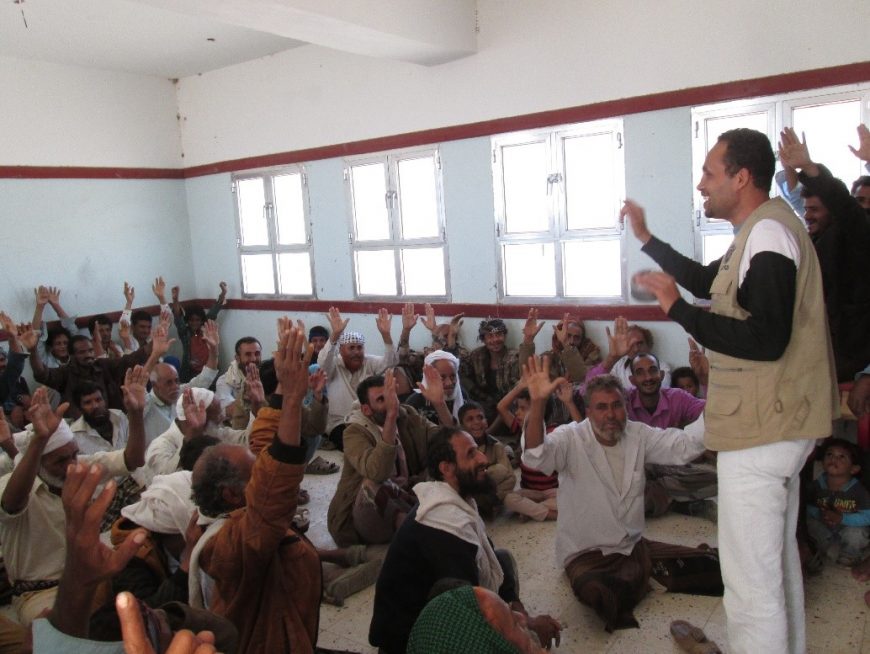
Wherever possible, ACTED forms and coordinates its projects with Community Committees in each location. There are countless benefits to this approach:
- It allows the selection of projects on the basis of community-defined priorities.
- It promotes community ‘buy-in.’
- It allows ACTED a better understanding of pre-existing skills and local approaches, thus helping to define the overall approach.
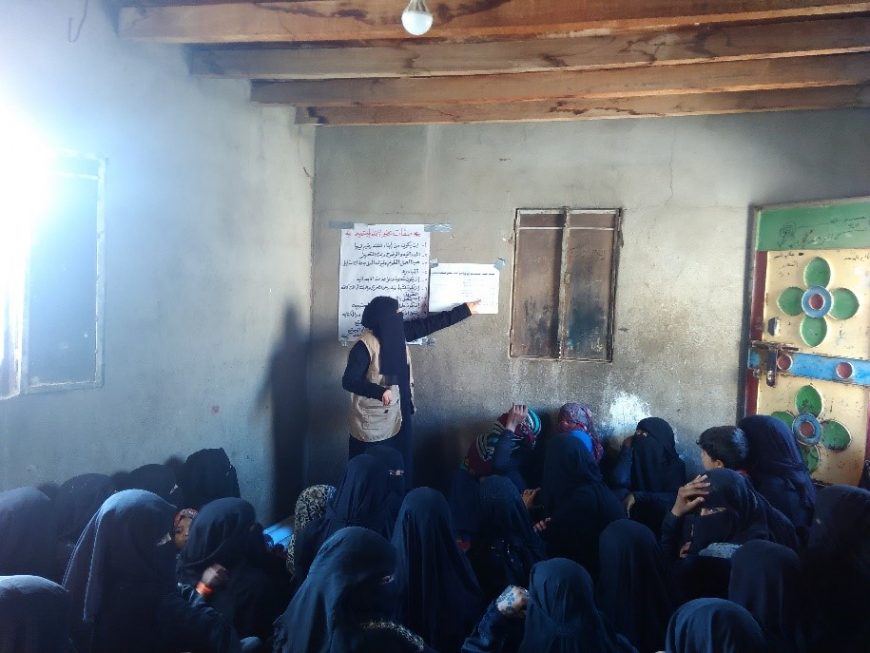
All-female community committees
To reinforce the role of women and youth in managing community resources, ACTED consults with all-female community committees to guide the selection of community infrastructure projects.
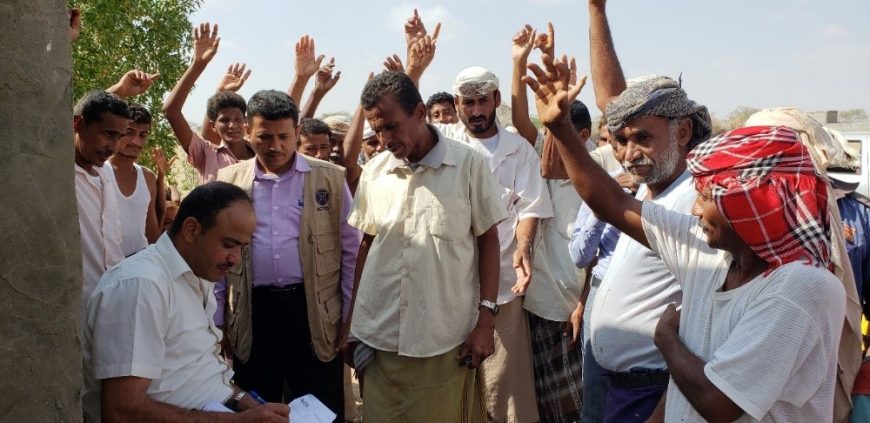
Long-term sustainability projects
ACTED prioritizes infrastructures which are used by the whole of a community, rather than assets which are used by a particular demographic. This also aids the long-term sustainability of the projects as so many families believe they have a stake in ensuring they continue to function.
Who benefits from the project and how?
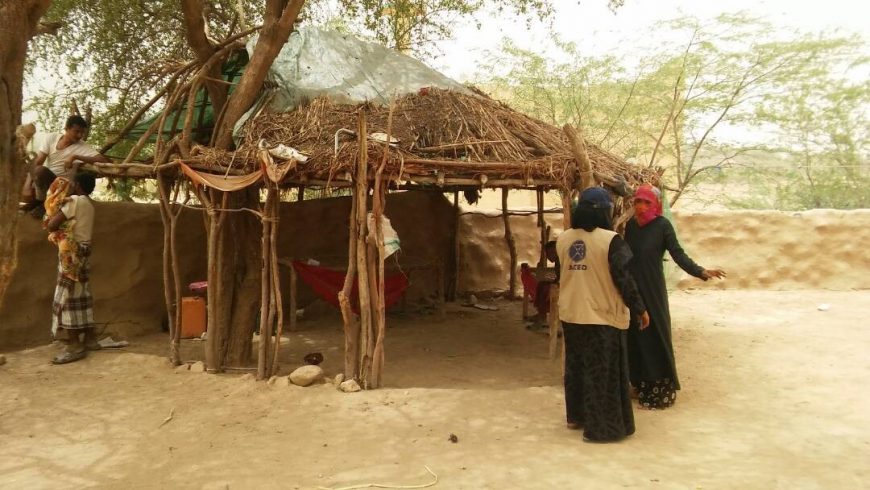
When selecting the community members who will benefit from an intervention, ACTED targets households that are: most vulnerable to food insecurity, are headed by a female member of the family, have a high number of children under five, and contain pregnant and lactating women.
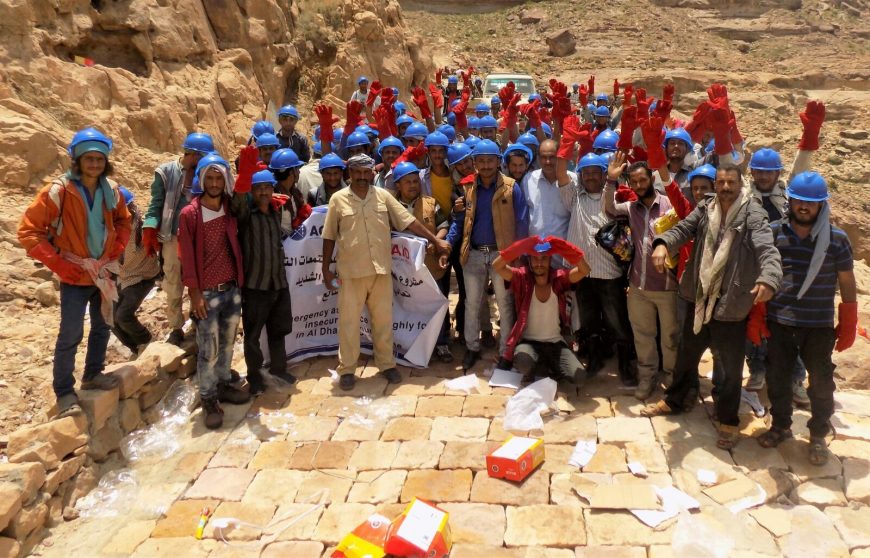
Prior to commencing work, the community members receive a first aid safety training to ensure they understand the necessary safety precautions to be taken.
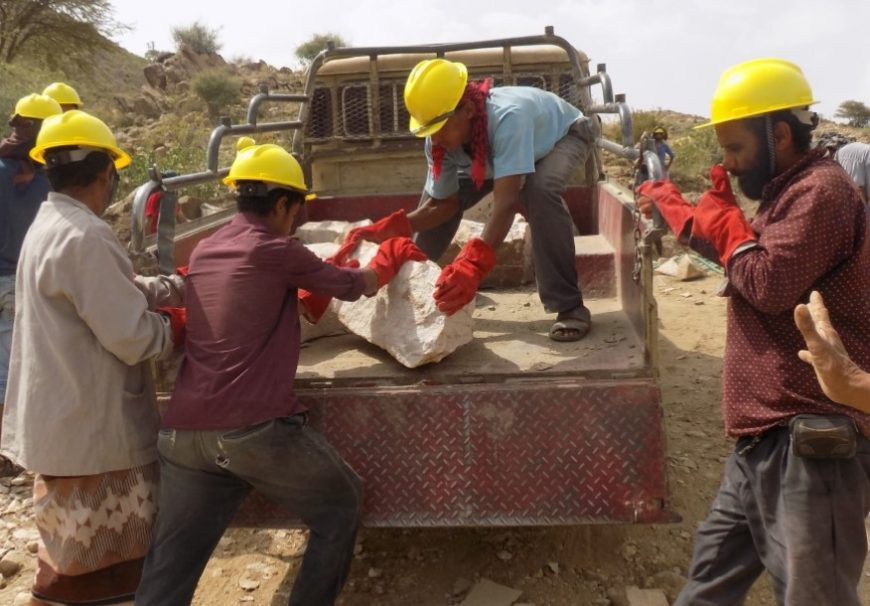
The daily work schedule is agreed with the community members in each location to ensure this is reflects local realities (such as travel times to the site) and provides the flexibility for men to choose the number of days which they work on a project.
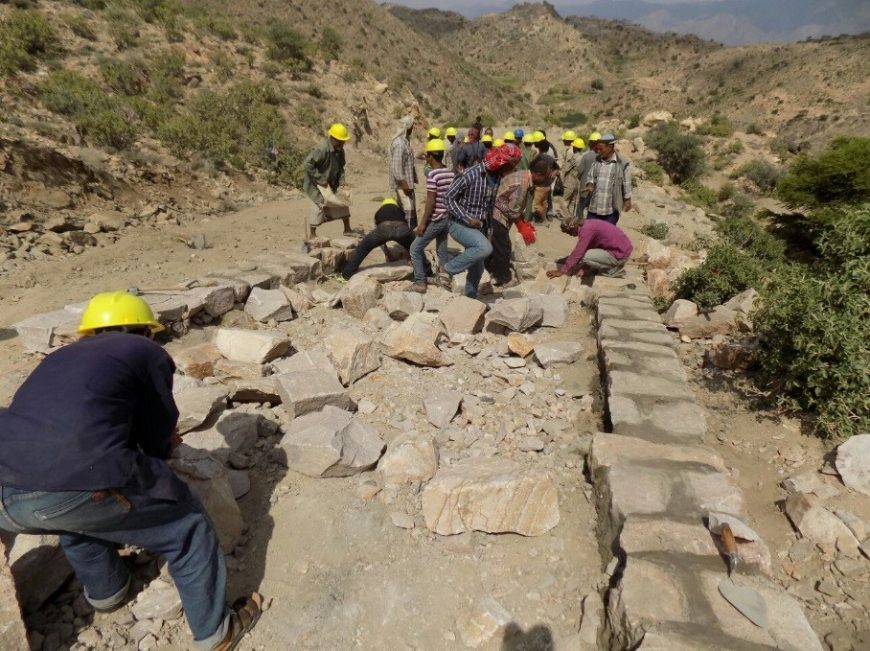
ACTED strives to ensure that project activities takes place only during daylight hours and take place as close as possible to the participants’ homes.
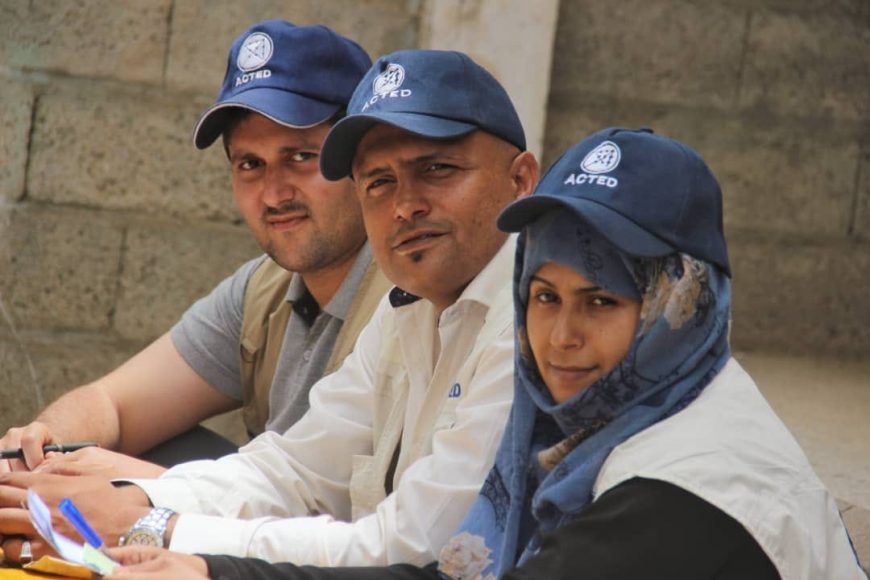
ACTED distributes vouchers (for work) and food assistance in public spaces during daylight hours, also selecting these sites on the basis of proximity to the homes of those targeted so as to minimize the distance traveled.
How does ACTED ensure that the community can take over?
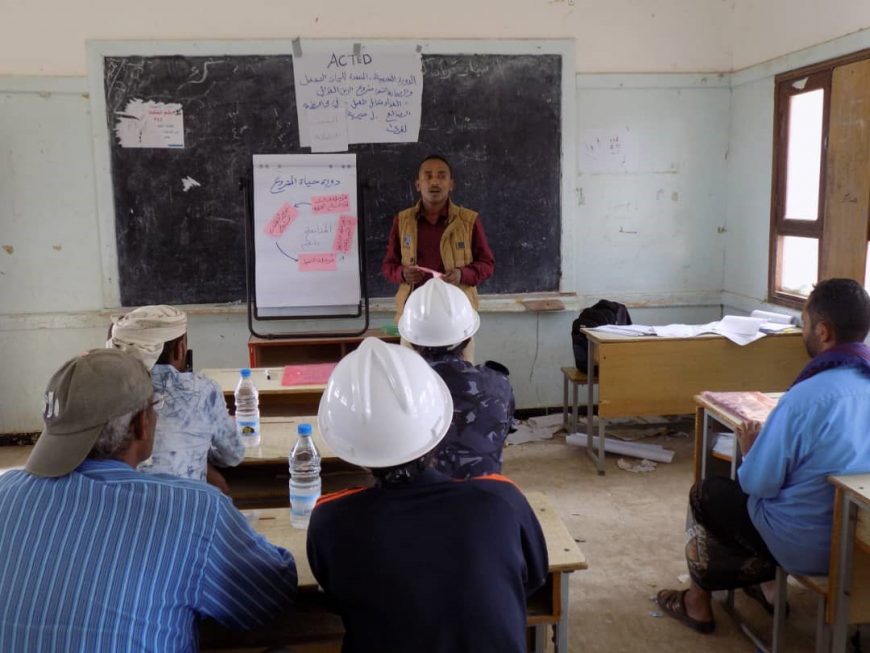
Prior to the handover of community infrastructure projects, ACTED also establishes Asset Management Committees, whose membership includes at least 30% female participation. Once trained, these groups will ensure that communities can independently maintain the upkeep of the assets rehabilitated over the course of the project.
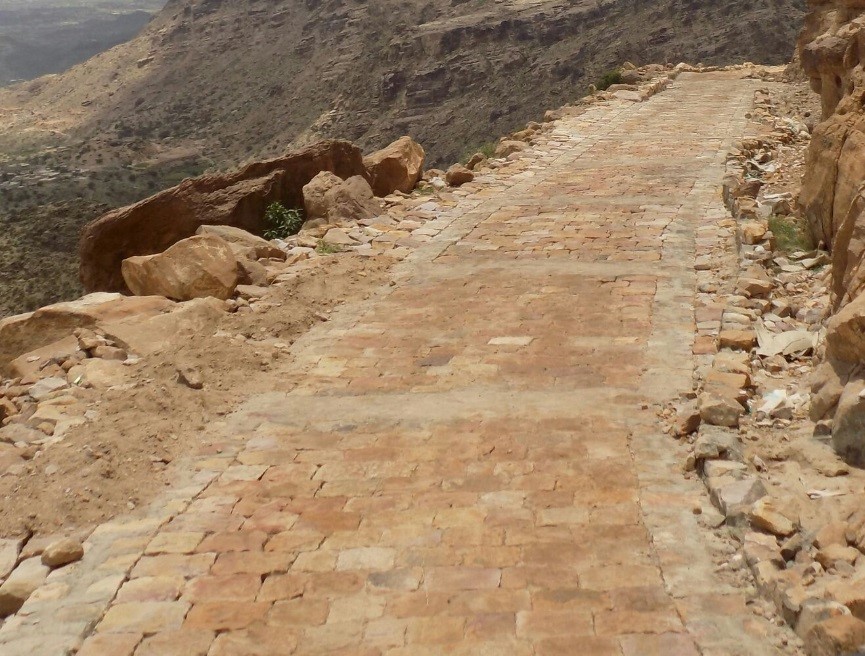
A rehabilitated road in Al Salala’ah Ash Shuayb: Many rural communities in Yemen rely on a single road for access to the outside world, hence the crucial importance of maintaining such infrastructures.
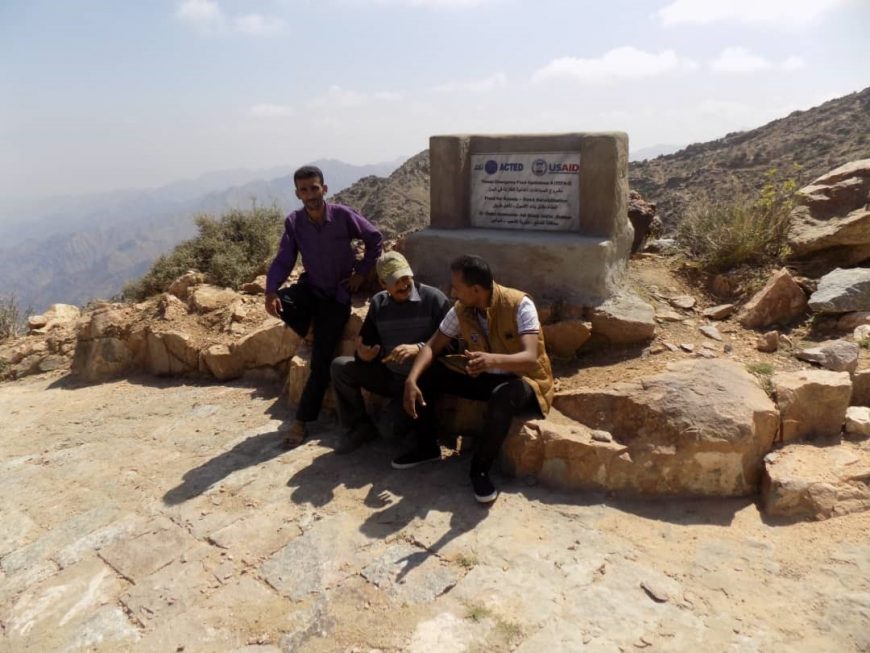
Once work is complete, ACTED hands over the tools to the Asset Management Committees and creates a visibility signboard to spread local awareness of the work of ACTED and its donors.
Yemen faces a protracted humanitarian crisis due to the escalation in the conflict since March 2015. According to OCHA, the humanitarian outlook in Yemen is worsening steadily over time; over 22 million people are in need of assistance, approximately 11 million of whom have acute needs. The most serious threat facing Yemenis is hunger; in 2019 nearly 10 million people are suffering from extreme hunger and close to 240,000 people are experiencing catastrophic food consumption gaps.